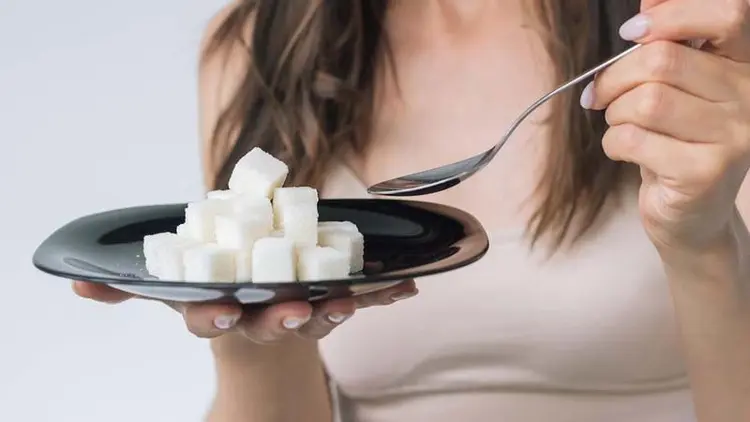Many people find it difficult to reduce their sugar intake because they think it makes their meals less tasty and enjoyable. People sometimes add sugar to food and drinks to enhance flavor, but excessive sugar consumption can lead to serious health problems, such as diabetes, obesity, and heart disease. The positive news is that you can reduce your sugar intake without sacrificing taste. By making small changes and smart choices, you can still enjoy delicious food and stay healthy.
Why Eating Less Sugar Is Important
Sugar sweetens food, but it doesn’t provide many nutrients. It’s considered a source of empty calories because it provides energy but not the nutrients you need. Over time, too much sugar consumption can increase your risk of weight gain, insulin resistance, and chronic diseases. Cutting sugar is good for your health and can boost your energy and mood. Limiting your sugar intake helps keep your blood sugar levels more stable, prevents energy loss, and keeps you feeling fuller longer after meals.
Getting Used to Less Sugar
One of the best ways to reduce your sugar intake is to slowly train your taste buds. People are often accustomed to eating very sweet foods, so less sweet foods may taste bland at first. But if you gradually reduce your sugar intake, your taste buds will adjust, and you’ll start to appreciate the natural sweetness of foods like fruits, vegetables, and nuts. Over time, you’ll notice that sugary foods you once enjoyed now taste too sweet. This adjustment process allows you to enjoy delicious dishes without adding too much sugar.
Take Advantage of the Natural Sweetness of Fruit
Fruit, like nature’s candy, can be used to add natural sweetness to dishes. Bananas, apples, dates, and berries can be made delicious and sweet without refined sugar. You can use mashed bananas instead of sugar in baking, and dates can enhance the flavor of smoothies or desserts. Another way to experience natural sweetness is to add fresh or dried fruit to your cereal, yogurt, or salad. These drinks are not only delicious but also contain a source of fiber, vitamins, and minerals, which are beneficial for your health.
Choose the Right Drink
Sugary drinks are one of the biggest sources of added sugar in the diet. A simple strategy to reduce your sugar intake is to replace them with healthier options. You can also drink flavored water with lemon, cucumber, or berries instead of soda or sweetened juice. Herbal teas are also a good option, as they contain no added sugar and taste delicious. Over time, you’ll be able to stop craving overly sweetened drinks and enjoy the smooth taste of sugar-free drinks.
Choose Whole Foods Over Processed Ones
Many processed foods, such as sauces, snacks, and ready meals, contain hidden sugars. Choosing whole foods is one of the easiest ways to enjoy food while reducing your sugar intake. Vegetables, lean meats, whole grains, and fresh fruit are examples of whole foods that are delicious on their own and don’t require added sugar for flavor. When you cook at home, you have more control over the ingredients. You can use herbs, spices, and natural seasonings instead of artificial sugars for flavor.
Pay Attention and Read Labels
Another important step in reducing your sugar intake is understanding the sugar content of packaged foods. Nutrition labels can help you identify added sugars, often labeled as corn syrup, sucrose, or high-fructose corn syrup. By choosing products with less or no added sugar, you can significantly reduce your sugar intake while still enjoying delicious meals. Watching your portion sizes can also help you avoid overeating sugar. By being mindful, you’ll understand how much added sugar is in your food and make better choices.
Enjoying Balance Without Feeling Deprived
If you want to reduce your sugar intake, you don’t have to cut it out completely. The key is to find a healthy balance so you can enjoy delicious food without overindulging. A few sweet treats, occasionally in moderation, can help you avoid feelings of deprivation and make it easier to maintain healthier eating habits. The key is to manage your sugar intake and focus on nutritious foods. You can create delicious meals that help you achieve your health goals by using natural flavors, spices, and healthier options.
Conclusion
Reducing your sugar intake doesn’t mean you have to sacrifice taste. You can choose natural alternatives like fruits, spices, and fresh herbs to enjoy delicious meals while staying healthy. By choosing unprocessed products, cooking in ways that bring out the natural sweetness, and eating mindfully, you can reduce your sugar intake without feeling deprived. Over time, your taste receptors will adapt, and you’ll learn to enjoy the natural flavors of food more. A balanced approach to eating makes it easier to maintain these changes long-term, leading to a healthier lifestyle.
FAQs
1. Why is reducing sugar in your diet vital?
Reducing your sugar intake can lower your risk of diabetes, cardiovascular disease, and obesity, while also making you feel better and have more energy.
2. How can you make food taste sweeter without adding sugar?
To naturally sweeten food, you can add fruit, spices like cinnamon, and vanilla extract.
3. Should I eliminate sugar completely?
No, while small amounts of sugar can be beneficial, limiting your sugar intake is crucial for optimal health.
4. Which foods are naturally sweet and beneficial for you?
Fruits like bananas, apples, berries, and dates are naturally sweet and rich in fiber and minerals.
5. How long does it take to adjust to a low-sugar diet?
Taste buds can change in just a few weeks, so low-sugar products usually taste better over time.




